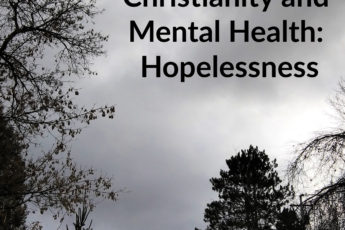Revised
I wrote this post in October 2019 when I was still living in Rhinelander. I wrote it in more of a scientific format but was never happy with how it was written so I am revising it. In 2019 I took a survey of six women with chronic pain. My thesis is chronic pain affects mental health.
Below are the survey questions with the responses.
Survey questions- six responders-all female
- What age decade are you in?
The youngest in the survey responders is between 30 and 40, the oldest is in her 70’s.
- At what age did you start to notice your pain?
One respondent has had chronic pain since she was 14 years old. Others noticed their pain started in their 40’s and 50’s.
- How long did it go on before you sought someone in the medical field?
One respondent suffers chronic pain due to limb loss and sought medical attention immediately. Others waited up to 12 years to seek medical attention for their chronic pain.
- Besides OTC medications, what other things do you use to help with pain?
There are several things the responders do to help with their chronic pain. Some use prescription drugs including narcotics and muscle relaxers, while others use heat and cold. Other things mentioned included: hot baths, stretching/exercising, Chiropractors, supplements, change in diet and my favorite, prayer.
Have you gone to physical therapy?
All but one of the respondents have gone to physical therapy.
What kind of exercises do you use to help with the pain?
The list of exercises ranges from walking to recumbent bike or elliptical. Many found stretching exercise to be very helpful.
- Do you take any prescriptions to help you with the pain? Do not say what kind.
Half of the respondents answered yes, and the other said no. One respondent answered seldom.
- When is your pain the worse? Morning or at night?
Many of the respondents said both depending on the type of pain they are having. A couple of them said their pain was usually worse at night. Another said their pain was worse in the morning.
- How does your pain effect your mood?
My respondents reported several different terms describing how their pain effects their mood including: crabby and unsocial, grumpy, and irritable, difficulty in focusing, frustrated, impatient, unfriendly, tired and lacks energy. One responded she tries to stay upbeat but when the pain is at its worst, she must concentrate on each step she takes. I need to learn this!
- Does your chronic pain keep you from doing things you use to do?
Some just responded yes to this question while others responded how their pain effects what they want to do. This tells me I should have rephrased the question to ask “how” instead of “does”. The oldest responded she still does what she wants only slower. Love it!
- How does that make you feel?
A few chose not to answer this question. I was trying to make the point chronic pain affects our mental health. Again, I could have rephrased the question. Some of the ones who did respond mostly indicated they were frustrated in one way or another. One said it made her determined! We all need to be determined to continue through our pain.
- Does your chronic pain effect your relationship with others?
A couple of the respondents said yes, with one stating it effects how she responds to her young children.
- Do you ever feel no one understands how much your chronic pain affects you?
One person responded all the time while others just responded yes. One person noted she has a great support system, but she works with the public and the public does not understand. Finally, one noted for the most part you cannot see whether a person has chronic pain and so it is difficult to understand it.
- Anything else you would like to add?
Only two responded to this question. One said she has a great support system who understands and that she would be in worse shape, mentally, if she did not have the support. The other said attitude is important.
(2019) I wanted to do this survey to see how others dealt with their chronic pain. When I first started to have problems with my back, I thought I was the only one. I started to feel depressed and stayed away from activities I used to love. All I had energy was for work and even there I struggled to get through each day. I thought I was trapped, and I felt I would have to live in pain the rest of my life. I also felt trapped by my schedule at work. I was always working from 2pm to 11pm every day including weekends. I rarely made it to church and that was taking a huge toll. The summer of 2018 I was off for six weeks. I started looking at different ways to earn income which would not be so hard on my back. I started this blog in October 2018. Over the winter I started having trouble with my shoulder and in the spring my left foot really started to give me problems. Between my back, shoulders, and foot I was racking up costly visits to the doctor. This summer I started walking with a cane. I thought this was going to be my life.
However, as I approached my 61st birthday and knew we were going to put in more self-checks at work I made up my mind I was going to investigate retirement at 62 years old and I was not going to work 2pm to 11pm anymore. It has been about three weeks and I am so much happier now. I have orthotics now and can walk most of the time without my cane. I am also getting to church every week and I love it!
Fast forward to today (June 2022). In December of 2021 I had total knee replacement. I was given a list of exercises to do on my own because I lost my insurance and could not afford therapy. I was off work for more than two months. When I went back to work my back started to have a lot of pain. I had new insurance, so I went to my primary right away and she sent me to a therapist and a spine doctor. This new therapist showed me exercises and told me why they worked for my specific pain. She said since my knee was still healing, I was walking differently, and it was affecting my back. Therefore, she gave me knee exercises along with back strengthening exercises. Equipped with this knowledge I find my back and knee getting stronger every day. The spine doctor gave me a back brace to wear. I found it works best when I am on my feet at work. I am also allowed a stool to sit on and that helps my back pain. Sometimes, when I do hurt it is harder to smile and be friendly with people I encounter. I try to remember it is not their fault I am in pain, and I should try to smile more.
My recommendations are: first, to seek God when the pain is bad. Remember, Jesus suffered a great deal when He died on the cross for you. He loves you very much and wants to have a relationship with you. Second, find a doctor who makes you feel like they are listening to you and will lay out a reasonable treatment plan. In my past I was referred to a doctor who did neither and felt very disrespected. Thankfully, I spoke up for myself and got a different doctor. Finally, as my former store manager says, “stay mobile”. He had an injury to his back several years ago but you would not know it by how hard he works. On my days off I do not have much pain, but I sit a lot. While I love to just sit and do computer work or watch TV it is not good for my joints. I need to make myself move around as much as possible. Being mobile and active helps with chronic pain and elevates one’s mood.
My schedule is very busy right now as I am involved in caring for a relative with driving them to appointments and other places. I am also involved in many things at church which I love. Sometimes I just take some time off to nap or read so I do not overdo and suffer pain. God said to work six days and to rest the seventh. Even if I cannot take a whole day to rest, I do try to take a few hours. Do what is best for you. Yes, chronic pain does affect your mental health if you let it. There are many ways to help with chronic pain listed in the survey questions’ answers and from my own experiences. I pray this has been helpful.
Below are a few books I recommend on this topic from:
By clicking on the link to any of these books or the christianbook website (above) and making a purchase you help with the costs of keeping this website running. I earn a commission from the sale at no extra cost to you. Thank you for your support!
| Chronic Pain: Finding Hope in the Midst of Suffering By Rob Prince If you’ve dealt with ongoing pain, you know that not all pain relief comes from a bottle of pills. Living with a chronic condition can be relentless and not everyone reaches a point of complete healing. As a sufferer of chronic pain himself, author Rob Prince explores the spiritual aspects of pain, addressing the difficult questions and realities of a chronic condition. Living Beyond Your Chronic Pain: 8 Simple Steps to a Pain-Free and Healthy Life – eBook By Joseph Christiano Don’t Waste Your Pain: Keeping Your Faith in the Midst of Chronic Pain By Myndi Orr |




Thank you for sharing this survey! As a now 30-something who developed fibromyalgia in my late 20’s, I’m always fascinated to hear stories from other chronic pain sufferers.
Interesting survey results. I’m glad you are in a place where you can make those choices to help your quality of life.